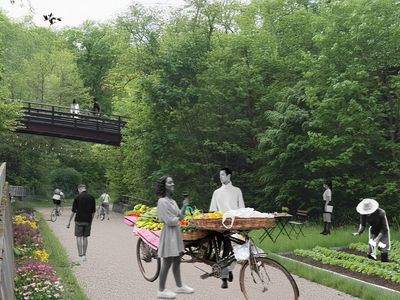Agrarian Revival: A New Allmende for AlbisriedenSneha Sinha Roy
How can the city be fed in a way that respects the land, people and non-humans?
The city of Zurich serves as a testing ground for new and innovative forms of agriculture. Due to the municipal administration’s constant efforts to encourage local farms and consumers towards a more circular eco-regionalist food-flow model, a change in consumer habits, reduced waste and a move towards seasonal and regional foods is occurring. But Zurich still only produces around 2-3% of its own food, while around 48% of its food is produced elsewhere in Switzerland.
Models like this urge us to consider their place in global food supply chains that heavily rely on long-distance food-flow logistics from across the world. These logistics also have devastating impacts on socio-environmental landscapes. This project aims to explore the impact of a localised food network involving the local actors and stakeholders while considering the projected 25% population growth in the next 15 years.
By proposing a new design for food and land management, this project aims to work with the existing and historic Allmende model of shared land management that has been a fundamental part of social and political relationships in Switzerland for decades.
This new Allmende identifies existing connections and builds new relationships that allow shared land management and the sharing of resources including labour, knowledge, tools and commodities to bring the farm to the community via direct selling. To test this model, the historic village of Albisrieden in west Zurich is taken as a case study. Albisrieden has several farms along the edge of the Uetliberg forest leasing plots of land from the municipality in a forest clearing, bringing together different actors and land-uses.
